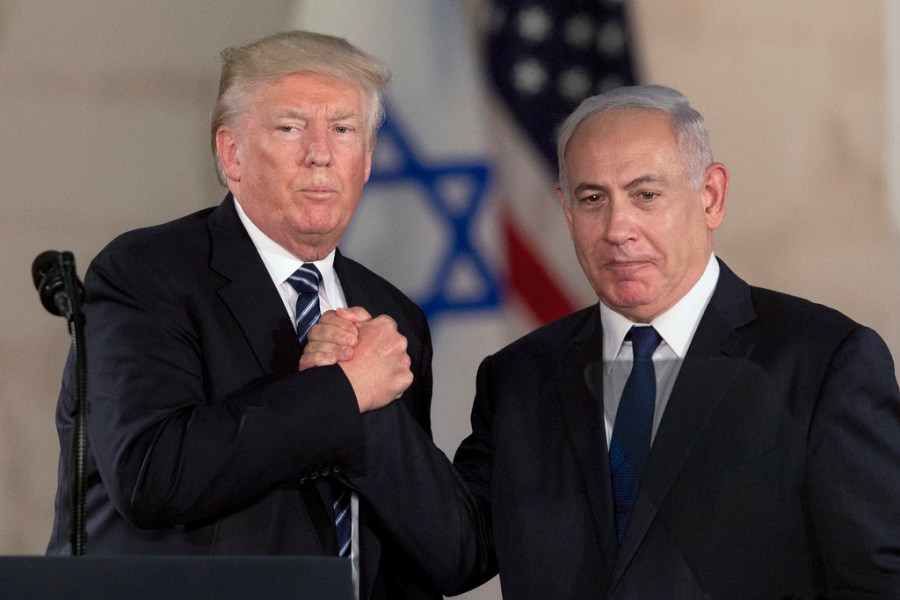
As Israel’s new ambassador to the U.S., I am deeply conscious of both the weight of responsibility and the unprecedented opportunity before us. The stakes are high. The international order has been awaiting a new global paradigm that transcends traditional concepts of multi-, bi- or unipolar world orders, and its time has arrived.
President Trump’s inaugural address provided a road map for the new world order, one in which moral clarity, common sense, a pursuit of the commonality of interests and a robust use of power wherever and whenever necessary are its guidelines. This is a paradigm that could be dubbed “Mutually Assured Construction” (MAC) — a deliberate contrast to the Cold War doctrine of “MAD — Mutually Assured Destruction.”
The Abraham Accords, architected and implemented by Trump and Israeli Prime Minister Benjamin Netanyahu, were a crowning achievement of their previous administrations. Both leaders have returned to govern their countries and both exemplify the potential of this new paradigm going forward.
Israel’s position as America’s strategic partner in this trend-setting agenda cannot be overstated. Our relationship generates tens of billions in mutual economic benefits annually. Israel’s military innovations save American lives and dollars, from the Trophy tank defense system to drone technology. Our intelligence sharing and cybersecurity cooperation protect both countries from evolving threats. Israel has also taken out terrorists with bounties on their heads for killing Americans, and while Israel’s wars are not wars of choice, by fighting the bad actors here, we free Americans from having too.
Most important, Israel has shown that the principled use of power can engender dramatic change for the better, an idea central to Trump’s goal of a new, safer and more equitable world order. No one imagined that the mass-murdering Assad regime in Syria would ever collapse, but after Israel was forced to decisively use its military to debilitate Hamas and Hezbollah, proxies of Iran’s global terror network, Assad’s Iranian-backed regime washed away like a rope of sand, dramatically changing the regional calculous for the better.
But much remains to be accomplished. To achieve the president’s goal of ending wars, in the Middle East as elsewhere, we must end the current conflict differently than its predecessors. History teaches us that half-measures and international monitoring mechanisms against terror organizations simply don’t work. The president recently spoke about America’s own experience with relinquishing strategic territory far from its borders. For Israel, a nation smaller than New Jersey, maintaining security buffers along its borders is not a luxury, but a necessity, for survival.
When Israel left Gaza in 2005, we hoped for peace. Instead, we got a terrorist state on our border. When we left Lebanon in 2000, we hoped for tranquility. Instead, we got an Iranian proxy army armed with 150,000 rockets aimed at our civilians. The lesson is clear: Our enemies, led by the Mullahs of Iran, interpret anything short of decisive Israeli victory as an invitation to prepare for the next round of violence. The path to genuine peace — the kind that prevents future wars rather than merely postponing them — requires decisive outcomes.
Israel cannot leave Hamas standing any more than the U.S. could have left Hideki Tojo and his kamikazes standing after their attack on Pearl Harbor, or, for that matter, Al Qaida after 9/11. The Netanyahu government spoke for all the people of Israel when it set three goals for the war following the Hamas massacre of 10/7: First, the complete destruction of Hamas. Second, the release of all our hostages. Third, ensuring that Gaza can never again threaten the safety of the people of Israel.
Netanyahu shares with Trump a vision of how principled strength can transform regional dynamics. The steadfast insistence that Iran’s nuclear infrastructure be dismantled, along with the forging of unprecedented alliances with moderate Arab and Muslim states, ensures that the axis of evil that threatens both our nations will be defeated.
The United States and Israel share not just interests but fundamental values — democracy, rule of law and the belief that power should serve justice rather than replace it. Together, we can demonstrate that democratic nations can defend themselves while upholding their values. This is not just about Israel’s security; it’s about proving that civilization can triumph over barbarism.
As I assume my role in Washington, I look forward to working with the American people and American leadership to advance our shared interests and values. By standing together and helping ensure Israel can secure its future in one of the most troubled areas on the globe, we can establish a new paradigm that brings genuine peace through strength — not just to Israel and its neighbors, but to all nations that choose construction over destruction.
Yechiel “Michael” Leiter is Israel’s new ambassador to the United States.












